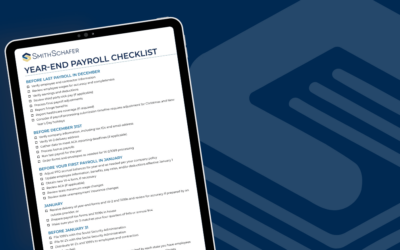Accounting is an integral part of any business. The transportation industry is growing steadily, and changes come quickly and unexpectedly. Therefore, it is crucial to have a good understanding of your business’s financial standing and maintain sound accounting systems. This article will discuss six accounting best practices to keep your books up-to-date and help create solid accounting protocols for your business.
Key Accounting tips for Transportation Companies
1. Create Separate Business Credit Card Accounts
Some transportation companies in the early stages make the mistake of interweaving personal and company finances. However, this makes it difficult to judge the company’s financial health properly. Keeping the two separate improves cash flow tracking, tax filing, and financial forecasting. Utilizing company cards more efficiently captures expenses rather than having owners or employees charge personal cards and get reimbursed. For example, having employees use company cards for items such as fuel and food for travel can make it easier to record these items to expenses when they are charged instead of waiting for receipts to be submitted for reimbursement.
2. Utilize Up-to-date Accounting Software
A critical business decision is determining which software you use to track your income and expenses. Transportation companies are dealing with an increasing amount of data that must be processed and recorded accurately to provide meaningful insight to stakeholders. Outdated accounting systems may be unable to cope with mass volumes of data, resulting in inefficient and ineffective decision-making.
The most popular product is QuickBooks; other options include Xero or FreshBooks. However, you will need to evaluate options as each has its advantages and disadvantages.
3. Review Accounting Transactions Daily
Maintaining a tight grip over your accounting processes enables you to prepare, strategize, and minimize errors. Utilizing data integration to your accounting package streamlines data entry, but you will still have transactions that will not automatically be recorded, such as accounts receivable transactions. It is important to record and categorize expense outflows and earnings daily.
4. Examine Financial Statements Monthly
Maintaining accurate financial records goes far beyond simple year-end tax preparation. Reviewing financial statements regularly sets your transportation company up for long-term financial health and success. A monthly review will help you proactively identify if you are meeting budgets and, if not, help to timely adjust your strategy to meet goals. It also allows you to notice any abnormal transactions appearing on the books to investigate and catch fraudulent activity quicker.
5. Manage your Receivables
An active role must be taken in managing your receivables. Making sure not to allow receivables to be outstanding for more than 30-60 days helps keep cash flow strong and have cash needed to pay bills. Managing receivables will also help you identify potential clients that are slow to pay and possibly choose other customers to do business within the future.
We recommend having a reliable method to manage receivables and establish formalized credit policies with your customers, to help maintain consistently cashflow.
6. Hire Experts
As a transportation company grows, leadership eventually reaches a point where maintaining accurate accounting records becomes too complicated and time-consuming to handle, even with the help of accounting software. It becomes necessary to hire an expert in-house or outsource an accountant. An accounting expert will help:
- Prepare financial statements and reports
- Handle audits
- Help make evidence-based, timely financial decisions
- Faster turnaround time
Less time worrying about your accounting means more time to focus on providing excellent service to your customers.
Questions?
Following the above best practices will help streamline processes to keep your accounting up-to-date and accurate. This helps you move forward with strategic planning and make the best decisions for your transportation business.
Need help? Smith Schafer offers customizable accounting services. Whether you need help managing the daily routine or assistance with more strategic decisions, such as software analysis, our accounting professionals can give you back valuable time and resources so you can focus on growing your transportation company. Contact us today to learn more about how we can help while providing accurate, timely, and professional financial advice.



